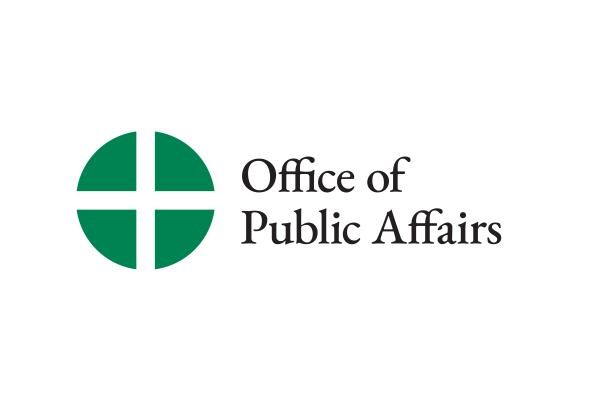Cardinal Condemns 'Revisionist' History of the Holocaust, Says Remembering This Event is Central to Catholic Teaching
WASHINGTON (December 14, 2006)—In a statement entitled We Must Remember the Shoah, Cardinal William H. Keeler said the U.S. bishops stand in solidarity with the Universal Church in condemning "revisionist history" that seeks to minimize the horror of the Holocaust.
WASHINGTON (December 14, 2006)—In a statement entitled We Must Remember the Shoah, Cardinal William H. Keeler said the U.S. bishops stand in solidarity with the Universal Church in condemning "revisionist history" that seeks to minimize the horror of the Holocaust.
The Cardinal cited a December 12 statement issued by the Holy See alluding to the teaching of Popes John Paul II and Benedict XVI: "The Shoah (the Holocaust) was an enormous tragedy, before which one cannot remain indifferent�the memory of those terrible facts must remain a warning for consciences with the aim of eliminating conflicts, respecting the legitimate rights of all peoples and calling for peace in truth and justice."
"Here in the United States, we have a wide range of resources to use in fostering Holocaust education not only in Catholic schools but in private and public schools as well," Cardinal Keeler said. He noted that in preparing those resources, the U.S. Bishops' Committee for Ecumenical and Interreligious Affairs cited two major reasons why studying the significance of the holocaust should be central to the curriculum of Catholic education:
"First, the Holocaust was not a random act of mass murder but 'a war against the Jews as the People of God, the First Witness to God's revelation and the eternal bearers of that witness through all the centuries,'" the Cardinal stated. "Second, future generations need to be ever vigilant so that 'the spoiled seeds of anti-Judaism and anti-Semitism (will) never again be allowed to take root in the human heart.'"
Cardinal Keeler issued the statement against the background of a December 11-12 conference in Iran at which speakers sought to diminish the scope of the holocaust.
Cardinal Keeler, Archbishop of Baltimore, is Episcopal Moderator for Catholic-Jewish Relations for the United States Conference of Catholic Bishops (USCCB).
Below is the full text of the statement by Cardinal Keeler.
We Must Remember the Shoah
On December 11-12 a conference, "Review of the Holocaust: Global Vision," took place in Iran. The conference was sponsored by the government of Iran whose President, Mahmoud Ahamadinejad, had previously denied that the Shoah (Holocaust) had ever happened. Speakers at the conference sought to diminish the scope of the Holocaust, the heinous crime against humanity by the Nazis who attempted to exterminate the Jewish people brought about the deaths of millions of other innocent people.
On December 12, the Holy See issued a statement that echoed the words of Popes John Paul II and Benedict XVI: "The past century witnessed the attempt to exterminate the Jewish people with the consequent killing of millions of Jews of all ages and social categories simply for the fact that they belonged to that people. The Shoah (the Holocaust) was an enormous tragedy, before which one cannot remain indifferent . . . The memory of those terrible facts must remain a warning for consciences with the aim of eliminating conflicts, respecting the legitimate rights of all peoples and calling for peace in truth and justice."
The Catholic bishops of the United States stand in solidarity with the Universal Church in condemning "revisionist history" that seeks to minimize the horror of the Holocaust. Here in the United States, we have a wide range of resources to use in fostering Holocaust education not only in Catholic schools but in private and public schools as well. In our own resource for such programs, Catholic Teaching on the Shoah (2001), the Bishops' Committee for Ecumenical and Interreligious Affairs stated two major reasons why grappling with the history and significance of the Shoah should be part of the central curriculum of Catholic education. First, the Holocaust was not a random act of mass murder but "a war against the Jews as the People of God, the First Witness to God's Revelation and the eternal bearers of that witness through all the centuries." Second, future generations need to be ever vigilant so that "the spoiled seeds of anti-Judaism and anti-Semitism (will) never again be allowed to take root in the human heart" (see We Remember, 5).
Let us take this occasion to renew our commitment both to remember the great irruption of evil into human history that was the Shoah and to use that memory to fight the evils that led to it.
Cardinal William H. Keeler
Archbishop of Baltimore
Episcopal Moderator for Catholic-Jewish Relations
For the U.S. Conference of Catholic Bishops

